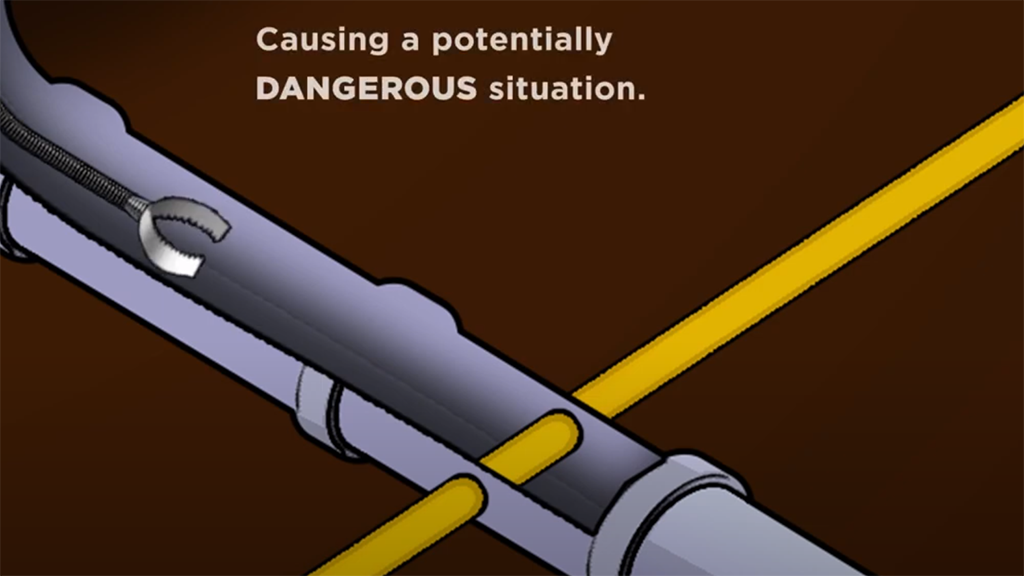Ontario One Call and partners in the utilities sector have launched the province’s first Sewer Safety Week to raise awareness of various underground utility hazards including one potentially lethal threat stemming from a sewer cross bore.
Sewer Safety Week is Sept. 18 to 22. With the advent of trenchless tunnelling, some underground natural gas pipes may have been unintentionally installed through sewer pipes, the public agency notes, a situation known as a cross bore. It’s a rare occurrence, explained Ontario One Call’s president and CEO Jim Keech, and the pipes can co-exist safely until the sewer pipe is blocked and needs to be cleared.
That’s when the threat looms.
“It can be a very serious problem,” said Keech.
“It’s one of these things that if it did happen, we know the situation could be very serious.”
If the homeowner or contractor is not aware of the cross bore, they may attempt to clear a sewage block with boring technology, Keech explained.
“If it breaks the line or in some cases even worse and nicks the line and you get a bit of a slow leak and it gets back into the house, if you get the right mixture of gas and oxygen, you can end up with an explosion.”
If a blockage is within the home, the homeowner or a plumber can safely remove it. But the prime Sewer Safety Week message is that if there is a blocked sewer outside the walls of the home, they must contact Ontario One Call before attempting to clear the blockage to ensure there are no conflicts with gas lines.
Ontario One Call will notify a service provider who will perform a free sewer safety inspection. If there are no cross bores, the plumber can continue to clear the blockage. If there is a potential cross bore, the appropriate utility will address the issue.
Ontario One Call’s partners in the initiative are Enbridge Gas, the Technical Standards and Safety Authority, Utilities Kingston and Kitchener Utilities.
The problem was rare 40 years ago when most underground installations were done using cuts, Keech said. But he remembers one incident some 35 years ago when he worked with Utilities Kingston.
“There was a clogged sewer and you get the plumber to clean it out, and in the process of cleaning it, they damaged a gas line. It was like, ‘How on earth did we ever end up as a gas line going through a sewer lateral?’” he said.
These days with more utilities such as power lines put underground and the growth in telecommunications lines, the volume of underground technology has probably doubled from 40 years ago, Keech estimated. Most of the lines can be detected through technology, such as tracer wire, but old clay sewer pipes may not be detected.
Keech said he is not aware of any explosions caused by sewer cross bores in Ontario, but the utilities partners decided to be proactive.
“It’s more a precaution based on a risk analysis of what can happen as opposed to a lot of things taking place,” he said.
Ontario One Call is a public authority established in 2012 by Ontario legislation stipulating that everyone must contact Ontario One Call before they dig. Last year the legislature gave Ontario One Call a stronger mandate, granting the agency the right to issue administrative penalties against non-compliant members and excavators in the industry.
There has been some concern from the province with the timeliness of locates, Keech said. Sewer Safety Week, he said, is “getting the message out to everyone, homeowners, residents, some small contractors, that this is what you need to do. This is how the process works.”
Follow the author on Twitter @DonWall_DCN.




Recent Comments